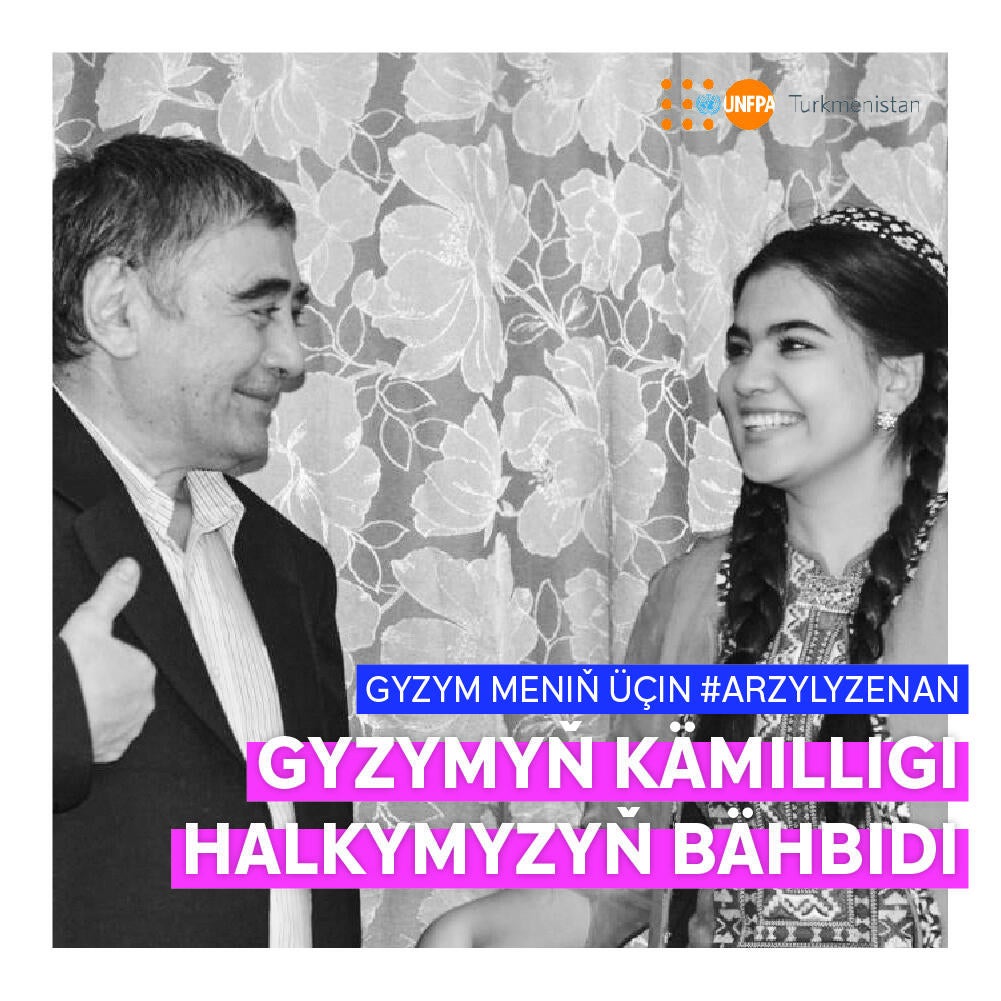1 July 2020, ISTANBUL/ASHGABAT -- Every year, millions of girls around the world are subjected to practices that harm them physically and emotionally, with the full knowledge and consent of their families, friends and communities, according to the State of World Population 2020, released by UNFPA, the United Nations Population Fund.
At least 19 harmful practices, ranging from dowry-related violence to virginity testing, are considered human rights violations, according to the UNFPA report, which focuses on the three most prevalent ones: female genital mutilation, child marriage, and extreme bias against daughters in favour of sons.
“Harmful practices against girls cause profound and lasting trauma, robbing them of their right to reach their full potential,” says UNFPA Executive Director Dr. Natalia Kanem.
An extreme preference for sons over daughters in some countries has fueled gender-biased sex selection or extreme neglect that leads to their death as children, resulting in 140 million “missing females.”
In the Eastern Europe and Central Asia, child marriage is generally illegal and on the decline overall, but is still practiced widely in parts of the region (up to 15% of women were married before they turned 18 in some countries; and in some communities one in two women was married as a child).
Son preference also remains common in the Eastern Europe and Central Asia region, resulting in heavily imbalanced sex-at-birth ratios in parts of the South Caucasus and South-East Europe, as many more boys are born there than girls.
Countries that have ratified international treaties such as the Convention on the Rights of the Child have a duty to end the harm. Many have responded with laws, but laws alone are not enough. Decades of experience and research show that bottom-up, grassroots approaches are better at bringing change, the UNFPA report states.
“These harmful practices have one root cause in common: the widespread and persistent under-valuing of girls and women,” says Alanna Armitage, UNFPA Regional Director for Eastern Europe and Central Asia. “But we are seeing that social norms are shifting in the right direction, and there is a real chance that working together – governments, civil society, influencers and role models – we can make practices harming girls a thing of the past.”
In Turkmenistan, on the occasion of the Global Report release, UNFPA will launch a campaign #Arzylyzenan (#Shecounts), which will encourage people to empower a girl in their families. Fathers, husbands and brothers will be invited to join the social media campaign to generate sentiment that there is pride in having girls and that they are valuable.
Amid the global COVID-19 pandemic, the progress made in ending some harmful practices is threatened. A recent analysis revealed that if services and programmes remain shuttered for six months, an additional 13 million girls may be forced into marriage between now and 2030.
The pandemic may increase the risk of forced early marriage as a strategy to reduce the economic burdens in the family. And lockdowns, school closures and movement restrictions are disrupting adolescent girls’ routines and their support systems.
“The pandemic puts more girls at risk and threatens to undermine the progress we’ve made,” Armitage says. “We must redouble our efforts to ensure that girls everywhere are fully able to enjoy their rights, make choices about their lives and their bodies.”
- Learn more about the #arzylyzenan campaign: Original Turkmen / English
- Read the SWOP Report: https://www.unfpa.org/swop-2020?_ga=2.168518689.1825474151.1593406935-45825183.1570193210
- Five things you didn’t know about harmful practices: https://www.unfpa.org/news/five-things-you-didnt-know-about-practices-harm-girls
For media and interview enquiries, please contact:
Jens-Hagen Eschenbaecher (Istanbul): +90 549 748 36 55 eschenbaecher@unfpa.org
Malene Arboe-Rasmussen (Copenhagen): +45 6166 1291; arboe-rasmussen@unfpa.org
Eddie Wright (New York): +1 917 831 2074; ewright@unfpa.org
In Turkmenistan, for more information, please contact:
Ene Tuyliyeva, Youth and Communications
National Programme Associate
+99312 488325
www.instagram.com/unfpa_turkmenistan
imo: +99362 833158


